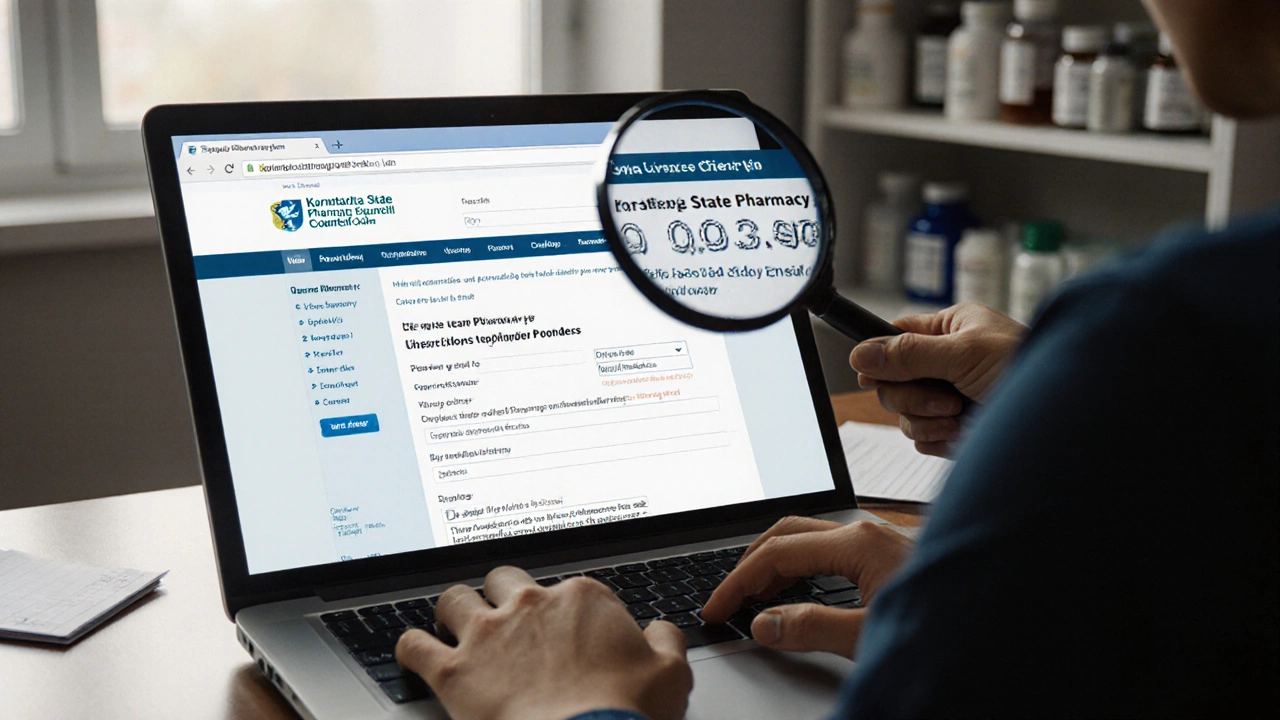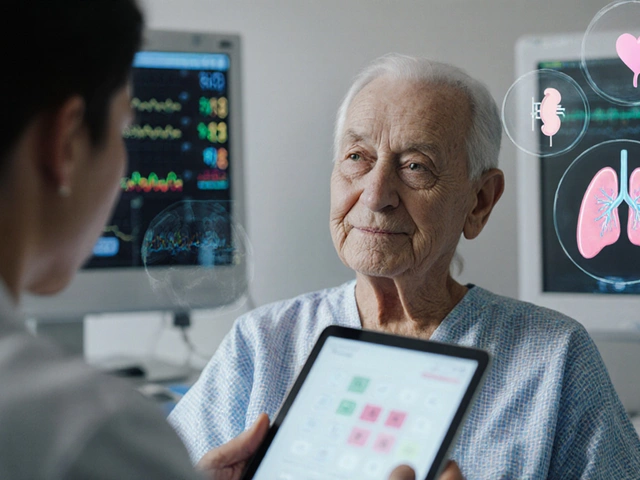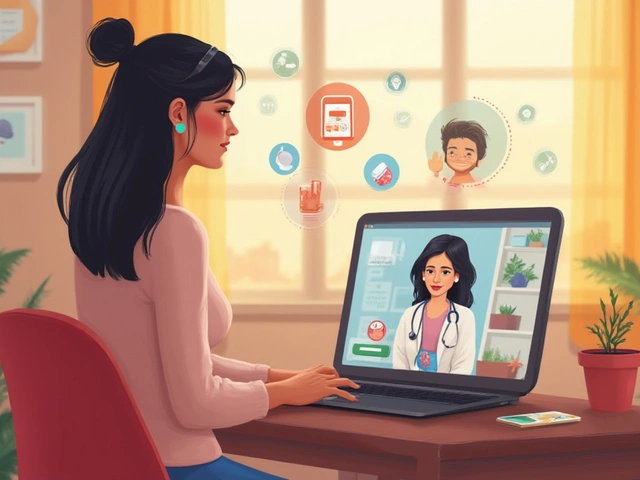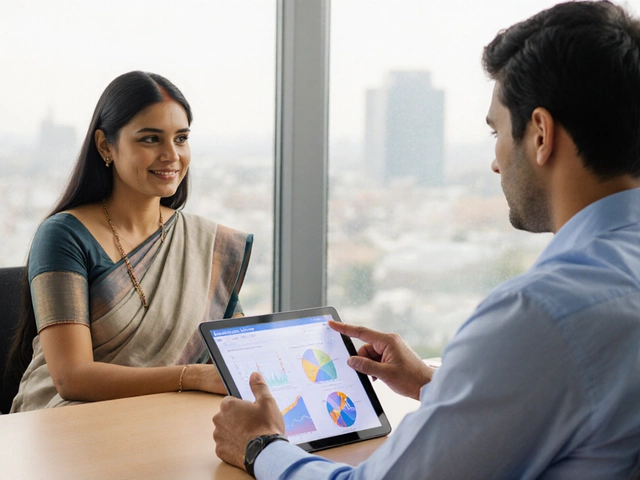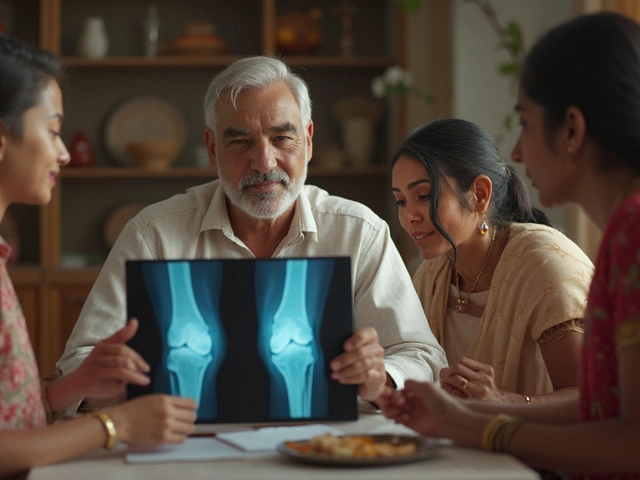Online Pharmacy Verification Tool
Check Your Pharmacy's Legitimacy
This tool helps you verify if an online pharmacy meets Indian regulatory standards. Enter the pharmacy details below to check:
Trusted Platforms
Consider these verified pharmacies in India:
- 1mg - Verified by CDSCO with pharmacist consultations
- Netmeds - Tata Group, physical warehouses
- PharmEasy - Works with 5,000+ registered pharmacies
- Medlife - Temperature-controlled delivery
Buying medicine online sounds simple-click, pay, wait for delivery. But one wrong choice can land you fake pills, dangerous side effects, or even a criminal record. In India, the online pharmacy market grew over 40% last year, but nearly 1 in 3 websites selling medicines don’t have a valid license. How do you know which one to trust?
Check for a valid pharmacy license
Every legal online pharmacy in India must be registered with the state pharmacy council and display its license number clearly on the website. Look for the phrase "Licensed by [State] Pharmacy Council"-not just a generic "Certified" badge. Click on the license number. It should link to the official state council’s website where you can verify the pharmacy’s name, address, and status. If the link is broken, or the license number doesn’t show up in the public database, walk away.For example, in Karnataka, you can search the Karnataka State Pharmacy Council database. If a site says it’s licensed in Bangalore but you can’t find it there, it’s fake. Real pharmacies don’t hide their credentials.
Require a prescription for prescription drugs
No legitimate online pharmacy will sell you antibiotics, blood pressure pills, or insulin without a valid prescription. If a site lets you buy Viagra, Oxycodone, or insulin with just a few clicks and no doctor’s note, it’s breaking Indian law-and putting your life at risk.Some shady sites claim they offer "online consultations" to get around this rule. But if the doctor doesn’t ask about your medical history, symptoms, or current medications, and just approves your order in under 2 minutes, that’s a red flag. Real telemedicine takes time. It’s not a formality-it’s a safety check.
Look for physical address and contact details
A real pharmacy has a physical location you can visit. Check the website’s "Contact Us" page. Does it show a full street address, landline number, and email? Try calling the number. If it goes to a voicemail with no name, or the line is disconnected, that’s not a pharmacy-it’s a front.Also, check Google Maps. Search the address. Does the building look like a pharmacy? Is there a storefront, staff photos, or customer reviews? Fake pharmacies often use PO boxes or rented office spaces with no real operations. Legit ones have warehouses, pharmacists on-site, and delivery teams.
Verify the website’s security
Before entering your credit card or Aadhaar details, make sure the site uses HTTPS. Look for the padlock icon in the browser’s address bar. Click it. The certificate should be issued to the pharmacy’s official name-not some random domain like "meds4u-deals[.]com".Also, avoid sites that ask for payment only through UPI QR codes, crypto, or wire transfers. Legit pharmacies accept major credit cards, net banking, or digital wallets like Paytm or Google Pay. If they refuse standard payment methods, they’re trying to hide.
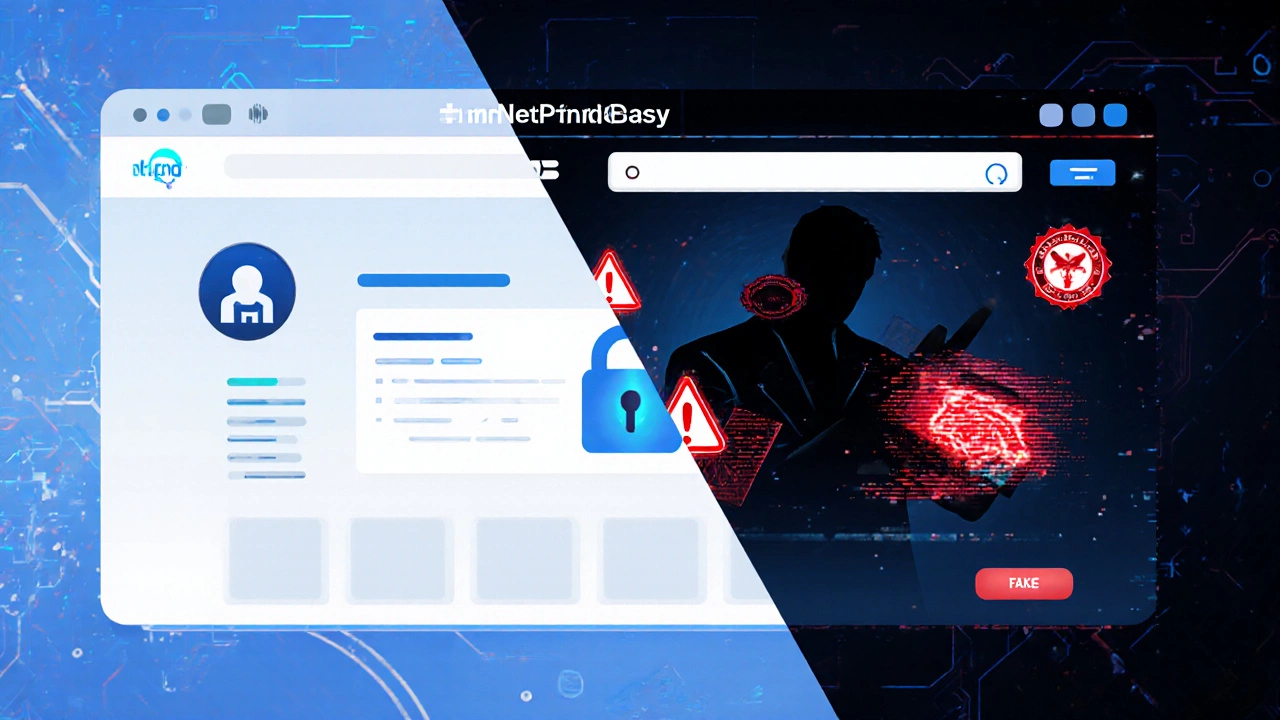
Read reviews from real customers
Don’t trust the 5-star reviews on the pharmacy’s own site. Go to Google, Trustpilot, or even Reddit. Search for the pharmacy’s name + "scam" or "fake". Look for detailed stories-not just "Great service!" but "I got expired Metformin," or "They never delivered my insulin for 12 days."Real customers mention specifics: delivery time, packaging condition, whether the medicine matched the prescription, or if the pharmacist called to confirm dosage. If every review is vague and overly positive, it’s likely fake.
Compare prices-but don’t chase the lowest
If a site sells a 30-day supply of Lisinopril for ₹15, while the same drug costs ₹220 at a local pharmacy, you’re being lured into a trap. Counterfeit drugs are cheap because they’re made with chalk, sugar, or worse. Real medicines have manufacturing costs, quality control, and logistics.Compare prices with a trusted local pharmacy or a verified online pharmacy like Netmeds, PharmEasy, or 1mg. If the online price is 50% lower than the market rate, it’s not a deal-it’s a danger.
Check if they have a licensed pharmacist on call
A good online pharmacy doesn’t just ship pills. They offer advice. Look for a "Talk to a Pharmacist" button. Click it. Do they respond within 24 hours? Do they ask about your allergies, other medications, or diet? Do they warn you about interactions?If you can’t reach a real pharmacist-or they just send you a bot reply-skip it. Medicines aren’t groceries. A pharmacist’s role is to prevent harm, not just process orders.
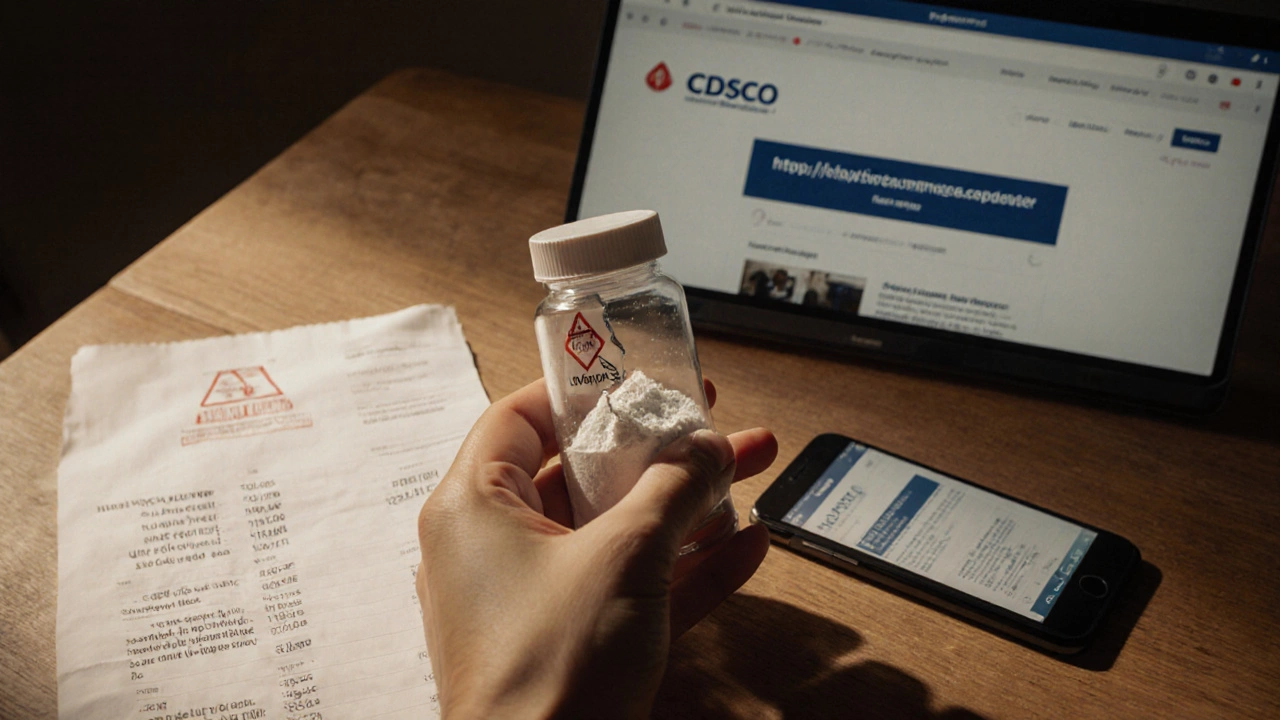
Watch out for too-good-to-be-true offers
"Free shipping on all orders," "Buy 2 get 1 free on cancer drugs," "No prescription needed for opioids"-these are classic scams. Even if the site looks professional, these offers violate Indian drug laws. The Central Drugs Standard Control Organization (CDSCO) bans the sale of controlled substances without strict oversight.Pharmacies that push supplements alongside prescription drugs? That’s another warning sign. They’re trying to upsell you on unregulated products while hiding the fact that their main business is selling fake medicines.
Know the legal risks
Buying prescription drugs from unlicensed sites isn’t just unsafe-it’s illegal. Under the Drugs and Cosmetics Act, 1940, importing or selling unapproved medicines can lead to fines or jail time. If you’re caught with counterfeit drugs, even as a consumer, you could face legal action.And if the medicine harms you? Good luck suing a website with no address, no phone number, and a domain registered under a fake name in another country.
Stick to trusted platforms
In India, these are the most reliable online pharmacies as of 2025:- 1mg-Verified by CDSCO, offers real pharmacist consultations, and publishes batch numbers for every drug
- Netmeds-Part of the Tata Group, has physical warehouses in 12 cities, and allows prescription uploads
- PharmEasy-Works with over 5,000 registered pharmacies across India, has a transparent return policy
- Medlife-Offers home delivery with temperature-controlled packaging for insulin and vaccines
These platforms don’t just sell medicine-they follow the same rules as brick-and-mortar pharmacies. They keep records, report adverse effects, and work with licensed suppliers.
What to do if you’ve already bought from a fake pharmacy
If you suspect you got fake medicine:- Stop taking it immediately
- Save the packaging, receipt, and any communication
- Report it to the CDSCO via their portal: cdsco.gov.in
- Call the National Poison Control Helpline at 1800-11-6117
- Visit a doctor and tell them exactly what you took
Don’t wait for symptoms. Fake medicines can cause organ damage without showing signs for weeks.
Can I buy medicines online without a prescription in India?
No. Under Indian law, prescription drugs-including antibiotics, steroids, and heart medications-cannot be sold without a valid prescription from a registered doctor. Any website offering these without one is operating illegally and may be selling counterfeit or unsafe products.
How can I tell if an online pharmacy is real or fake?
Check for a visible, verifiable pharmacy license from your state council, a physical address you can find on Google Maps, a working phone number, HTTPS security, and a requirement for a prescription. Real pharmacies also have licensed pharmacists available to answer questions and offer advice.
Are online pharmacies cheaper than local ones?
Sometimes, but not always. Legitimate online pharmacies usually match or are slightly cheaper than local stores due to lower overhead. But if a site offers drugs at 50% or more below market price, it’s likely selling expired, counterfeit, or substandard medicine. Never sacrifice safety for savings.
What should I do if I receive the wrong medicine?
Stop using it immediately. Take photos of the packaging and the medicine inside. Contact the pharmacy’s customer service in writing and demand a return or replacement. If they don’t respond or refuse, report them to the CDSCO and your state pharmacy council. Keep all evidence-it could help others.
Can I trust online pharmacies that offer free consultations?
Only if the consultation is conducted by a registered doctor who asks detailed questions about your health, reviews your medical history, and prescribes based on real need. If the consultation feels rushed, automated, or doesn’t lead to a proper prescription, it’s a scam. Free consultations are legal-but only if they’re real.
Is it safe to order medicines from international websites?
No. Importing prescription drugs from overseas without a license from CDSCO is illegal in India. Even if the medicine is genuine, it may not meet Indian standards for storage, labeling, or potency. You also risk customs seizure, fines, or health risks from unregulated supply chains.
Choosing an online pharmacy isn’t about convenience-it’s about survival. Your life depends on the quality of the medicine you take. Don’t let speed or savings blind you to the risks. Stick to licensed, transparent, and accountable platforms. When it comes to your health, there’s no shortcut worth taking.
